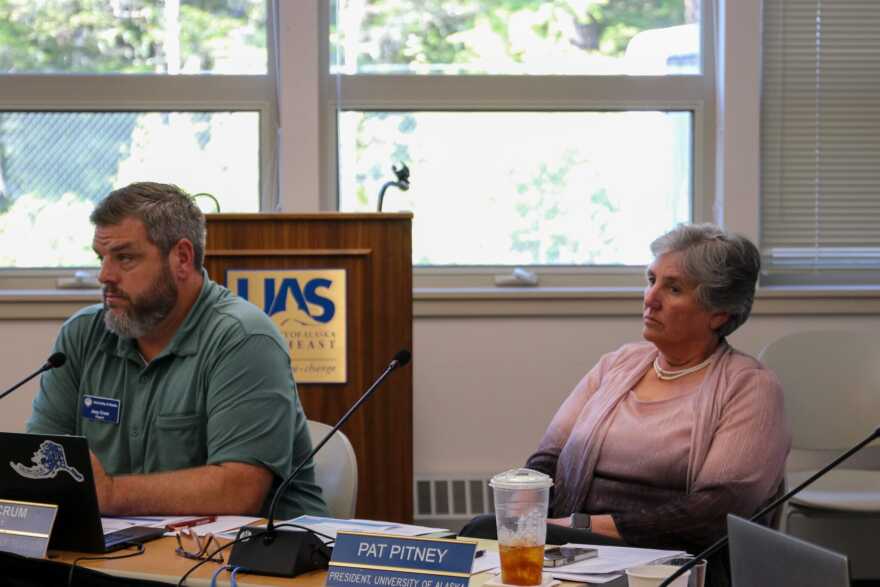A controversial higher education compact from the Trump administration has sparked a petition from several University of Alaska unions, who say they’re worried about political overreach stifling academic freedom.
Several University of Alaska staff and community members testified against the Compact for Academic Excellence in Higher Education on Monday before the UA Board of Regents meeting later this week. A petition from unions representing faculty, graduate workers and university staff opposing the compact also received 659 signatures.
Jill Dumesnil is a mathematics professor for University of Alaska Southeast and the president of the faculty union United Academics AAUP/AFT. She said in an interview that the compact ties federal funding to a political agenda.
“It restricts the freedom to teach, research and learn,” she said. “It undermines institutional autonomy and self-governance, and it ties benefits, research benefits, to factors other than scientific merit.”
The compact lays out requirements for universities to receive federal funding. Part of the compact instructs universities “to seek such a broad spectrum of viewpoints not just in the university as a whole, but within every field, department, school, and teaching unit.” It also includes a 5-year tuition freeze and limits how many international students a university can admit.
The U.S Department of Education initially sent the compact to nine universities, and most of them rejected it. In a Truth Social post last month, Trump said any higher education institution in the country could sign on to it.
Even though the UA Board of Regents has not made any move to accept the compact so far, Dumesnil said they want to make their voices heard on the issue. In February, the board suddenly approved a motion to scrub mentions of diversity, equity and inclusion in a process that didn’t give the public an opportunity to comment.
“We didn’t want that to happen again. So that’s why we went ahead and told them what we thought,” she said. “And you know, that’s all we can do.”
Kate Quick works for United Academics at the university but testified on Monday as an individual. She says the February motion had a “chilling effect” on people in the university and community.
“When the compact came out, people started to say, ‘Oh, just wait. The board will be the first to sign,’” Quick said. “And so that’s why this petition went around, and that’s why people are calling tonight to ask you not to sign.”
But Jonathon Taylor, the director of public affairs for the university, says the motion from February is different from the compact because it was based on a direct communication from the federal Department of Education.
“If there’s a question as to whether or not the university needs to take action on particular direction or guidance changes or policy changes that have been made, we need to see those official communications to the university, because that’s what the standard practice is,” Taylor said.
Taylor said the agenda for this week’s meeting doesn’t include discussion or action items on the compact. The board is scheduled to meet on Thursday and Friday in Anchorage.

